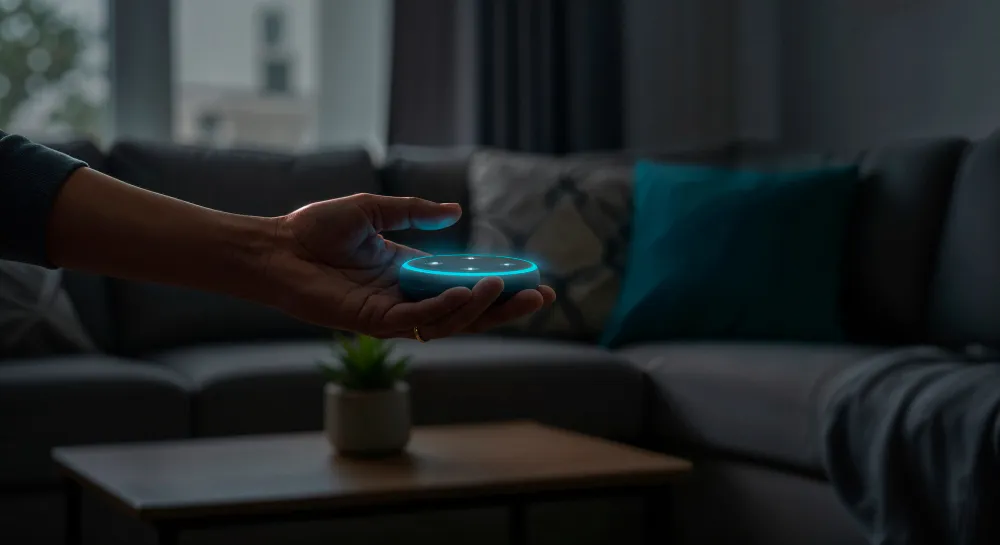The Future of Home Coverage: Inside Smart Insurance Solutions
The insurance market has been leveraging smart home infrastructure to streamline pricing and coverage — understand how it works.
Smart Insurance Saves Your Home and Your Wallet: The New Era of Home Protection
The way people protect their homes is undergoing a transformation. The rise of smart homes is creating new demands and opportunities in the home insurance sector.
These new devices not only change how residents interact with their homes but also how insurers assess risks, price policies, and offer services.

The concept of smart home insurance is emerging as a more dynamic, personalized, and efficient model of property protection, with a direct impact on consumer behavior and the economy as a whole.
The Impact of Smart Homes on the Insurance Sector
Insurers have traditionally based their policies on broad statistical models, considering factors like location, property size, claims history, and generic risk profiles.
However, these models have limitations, as they fail to capture real-time data on residents’ behavior or the specific conditions of each home.
With the integration of smart devices, insurers now have access to more granular and up-to-date data on the internal environment of homes.
Connected smoke detectors enable faster response in case of fire, while water monitoring systems can detect leaks before they cause major damage.
Benefits of Smart Home Insurance
Personalized Pricing
Real-time data analysis allows insurers to offer more customized plans for each client.
Homeowners who adopt advanced security systems or continuous monitoring can receive significant discounts, as they represent a lower risk of claims.
Active Risk Prevention
Smart insurance is not just about compensation but plays a proactive role in risk prevention. Alerts for imminent risks help reduce damages and costs, benefiting both clients and insurers.
Enhanced Customer Experience
The digitization of processes, combined with automated monitoring, simplifies the consumer journey. Instead of bureaucratic and lengthy procedures, service becomes proactive and data-driven.
The Smart Insurance Market in the U.S.
According to estimates by Allied Market Research, the global smart insurance market is expected to exceed $120 billion by 2030, with the United States leading this trend.
The penetration of smart homes in the country is one of the main drivers of this growth.
Companies like State Farm, Allstate, and Progressive already offer incentive programs for clients who adopt smart devices, providing up to 15% discounts on policies.
Simultaneously, fintechs and insurtechs are emerging with 100% digital proposals and models based on usage-based insurance, where consumer behavior dictates pricing in real-time.
Economic Implications of Smart Insurance
Reduction of Operational Costs
Automation and digitization of claims processes drastically reduce insurers’ administrative costs, streamlining internal management.
Change in Consumer Behavior
Consumers who see financial advantages in protecting their homes with smart devices are likely to adopt these technologies more quickly.
Financial Inclusion
With more flexible and personalized insurance models, micro-property owners or renters—who previously considered home insurance inaccessible or unnecessary—now have access to solutions compatible with their financial reality.
Challenges and Barriers to Adoption
Privacy and Data Security
The use and storage of data pose risks, especially regarding potential breaches and cyberattacks.
Real-time data collection about home life requires strong policies for transparency, consent, and information protection.
Technological Infrastructure
Building a complete infrastructure to facilitate smart insurance access is challenging, limiting mass adoption of this model.
Regulation and Standardization
The CFPB (Consumer Financial Protection Bureau) and other regulatory bodies are developing guidelines to ensure that data-driven insurance practices are fair, transparent, and non-discriminatory.
The Future of Smart Home Insurance
Smart home insurance is not just a passing trend—it represents a true transformation of the market.
In the coming years, integrated platforms are expected to enable more holistic management of home security.
New pricing models will gain ground, with the ability to automatically adjust policies based on consumer behavior in real-time.
Partnerships between insurers, device manufacturers, and tech companies will expand the offering of personalized protection packages.
Smart home insurance is shaping a new paradigm for the home insurance sector in the United States.
The future of home insurance lies in smart homes—and those who understand this dynamic first will get ahead in the next generation of financial solutions.





